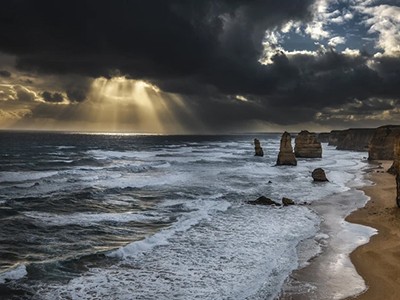
The Apostles, Great Ocean Road, in Victoria, Australia.Credit: The Eternity Photography/Getty
Australia’s exit from the Nature Index top ten — falling to 12th in the 2024 Research Leaders — will be unsurprising to those following the struggles of its research sector.
During the mining boom of the early 2000s, Australia’s research and development (R&D) intensity, a term to describe R&D expenditure as a percentage of gross domestic product (GDP), was at its peak. But it has since been in steady decline, bucking the trend of other major Organisation for Economic Co-operation and Development (OECD) economies. Whereas the average R&D intensity of the OECD group grew from 2.3% of GDP in 2008 to 2.7% in 2021, Australia’s dropped from 2.25% in 2009 to 1.68% in 2022, its lowest level in 20 years.

Nature Index 2024 Australia
At the same time, Australian universities, which undertook 36% of the country’s total R&D and 87% of its basic research in 2020, are in dire straits. The government’s decision to cap international student enrolments, a policy set to kick in next year, will force many of its most prestigious and research-intensive universities to recruit fewer students than in previous years — a major blow to their revenues given the high tuition fees that foreign students pay. This might further hamper their ability to invest in research, while also thwarting access to future scientific talent. Critics warn that the cap is unlikely to ease the pressure on the country’s housing market or funnel more students to less renowned and regional universities, as intended. However, it will be interesting to see if a scarcity of places actually bolsters prestige at some institutions and drives up the value of Australian degrees within China — the country’s largest market for international students.
Australia has a lot of work to do to strengthen its global standing in science, but it also needs domestic improvements in the way Aboriginal and Torres Strait Islander people are engaged with in research. There are positive movements on this front, but it will take real initiative from institutions to change entrenched systems and attitudes towards collaboration and data-sharing. The knowledge and expertise of First Nations people are increasingly being used to inform studies in the environmental sciences and other areas. Measures to ensure that this is done respectfully and responsibly are crucial if Australia wants to elevate the quality and impact of its research.
This article is part of Nature Index 2024 Australia, an editorially independent supplement. Advertisers have no influence over the content. For more information about Nature Index, see the homepage.






